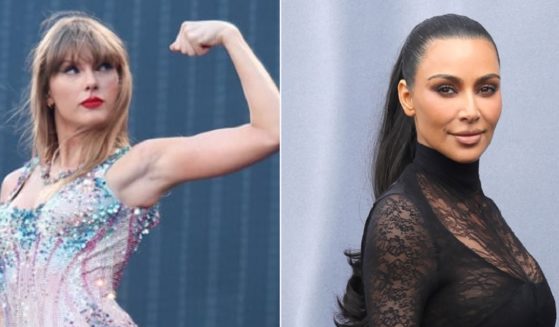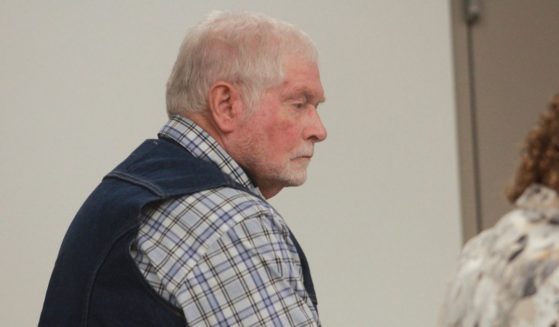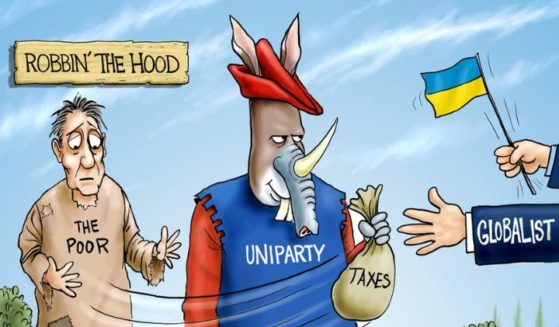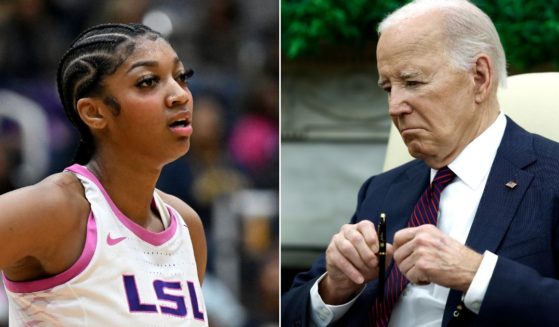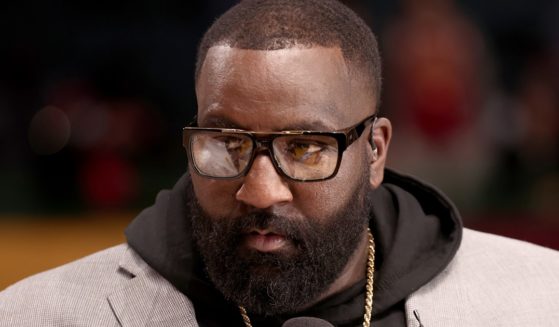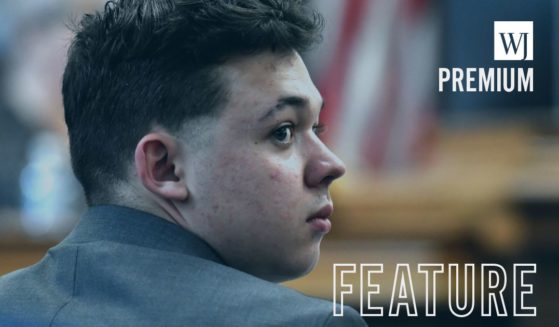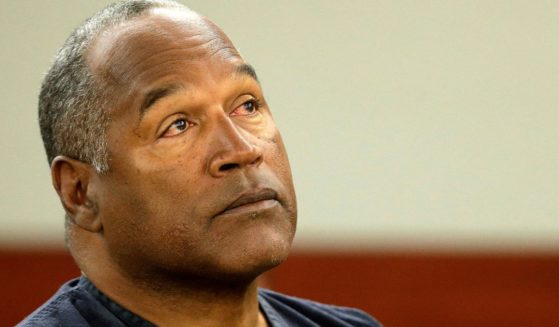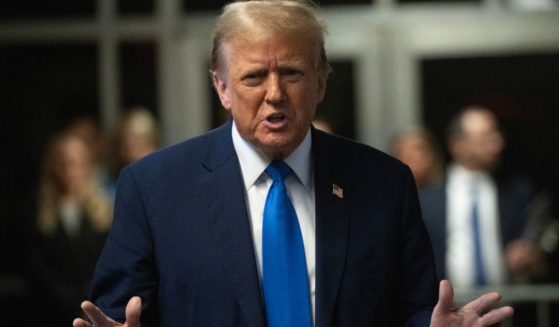5 Myths About School Choice Pushed by Democrats and Teachers' Unions
2021 already has been a big year for school choice.
Multiple states have introduced school choice policies in January alone, with many more likely to join in the coming months.
With that progress has come backlash from Democrats, teachers’ unions and others opposed to school choice policies, as those groups continue to spread myths about the policies.
So, in honor of the last day of National School Choice Week, here are the top five myths about school choice, debunked.
5: Education Choice Hurts Public Schools
The first and perhaps most often-repeated myth is that school choice will lower the quality of all public schools.
The argument used to propagate this myth goes something like this: If the state funds students rather than school systems, and students choose to leave, the school will be left with not enough resources to properly educate the children left behind.
Three incredibly faulty assumptions prop up this argument:
- Losing students and the funds attached to them is a net loss for schools.
- The amount of funding a school receives is directly correlated to the quality of education.
- Public schools will be worse off if forced to compete with private and charter schools.
With the first assumption, while public schools do lose the funds associated with students who choose to leave, the taxpayer funding loss is not necessarily greater than the cost of educating that student.
Therefore, when a student leaves, schools are left with more resources to educate the children who stay behind.
According to EdChoice, researchers who have conducted 52 analyses on the fiscal effects of private school choice programs have found that school choice programs “generate significant fiscal benefits for states and school districts by relieving pressure on their budgets.”
When it comes to the second assumption, increases in funding do not equal increases in student performance.
According to The Daily Signal, the spending per student in public schools in real dollars increased by about $10,000 from 1960 to 2016. In that same time, student outcomes remained flat.
The reason for this is simple and speaks to the final assumption: Public schools don’t have to compete for their families’ money and therefore have no concrete incentive to increase educational performance.
In a school choice system, rather than having to answer to faceless bureaucrats, public schools are directly accountable to parents who are much more actively invested in their children’s education.
If the school fails, the parents exit, leaving real incentives for the school to please parents by providing a quality education.
4: Choice Participants Perform Worse
Like many of the most convincing lies, this one is based on a kernel of truth.
Some studies do show student outcomes lower for students exercising their educational choice options.
As an analysis from EdChoice points out, however, the methodology for these often cherry-picked studies is severely flawed.
“The studies that have found negative effects typically reflect only the first year or two of participating students’ test scores in their new schools,” an article from EdChoice reads.
Over time, however, students who go to a private school of their choice “tend to turn their performance around in three to four years on average.”
“At the end of the day, researchers agree that more longitudinal studies are required to make any sweeping claims about school choice policies’ long-term effects on students. Most studies also find that school choice drives competition among schools, and public schools respond well to that pressure. Students who remain in public schools improve, too.”
When it comes to more thorough research, however, the results are clear.
A comprehensive meta-analysis of private school vouchers across the globe, written by three college researchers in 2016, found students in voucher programs performed better in reading and math.
3: Students with Special Needs Will Be Left Behind
Some detractors believe if students who have special needs choose to leave their public school, they will lose their legal protections because private schools don’t want them and can’t serve them.
During an Oct. 7 online seminar on school choice hosted by the Cato Institute, Inez Feltscher Stepman, contributor and senior policy analyst of the Independent Women’s Forum, dispelled this notion.
First, Stepman disagrees with the premise, noting that charter schools, a popular school choice option, are forced to take in all students regardless of their circumstances.
She went on to argue that choice always benefits children who have special needs.
“Students with special needs are some of the best-served students by school choice programs, in part because public schools have served them so poorly,” she said.
“This is not theoretical because there are already 100,000 students, people enrolled in the school choice programs, that are exclusively for students with special needs.”
Many private schools actually are better equipped to deal with the individual needs of disabled students as opposed to public schools.
In addition to that, numerous school choice programs using education savings accounts allow parents to not only use their education funding to pay for their child’s tuition, but to pay for other special-needs services as well, as school choice expert Corey DeAngelis explained on Twitter in 2018.
Several of the existing programs are targeted directly to children with special needs. & ESAs allow families to spend funding on special needs services that they may not receive in their schools.
— Corey A. DeAngelis (@DeAngelisCorey) January 25, 2018
2: Uneducated Parents Can’t Be Trusted to Make the Right Choice
Many people who are against school choice make the elitist argument that parents can’t be trusted to choose the proper education.
In a commentary for Education Week, three academics — Paul Teske, Patrick Wolf and Paul Hill — dispelled this notion and backed up their claims using their own research.
“Like middle-class parents who have always had choices, low-income parents don’t look for alternatives if their children are happy and successful in school. But once they start thinking about school options, low-income families want information about schools and think hard about the choices they have,” the article reads.
“Poor parents seek to escape problems evident in their children’s current school, and have definite ideas about the differences between one child and another (our studious boy, our distractible girl) that lead them to search for an appropriate match between child and school.
“Nothing we have found refutes (U.S. economist) Milton Friedman’s insight about the value of choice. Low-income parents want options, and they demonstrate excellent common sense in pursuing them.”
The academics note, however, that parents need to overcome certain informational barriers, at least until a “choice system is mature and all parents have options.”
The best fix for that problem would be to get the ball rolling on school choice sooner rather than later.
1: School Choice Is Bad for Teachers
Again, the notion that school choice is bad for all teachers is completely wrong.
The system is bad for one subset of teachers, however — teachers who are bad at their jobs.
Public teachers’ unions often protect bad teachers at the expense of students’ education.
Given that school choice competition pulls students out of underperforming school systems, bad teachers no longer are able to benefit from a monopoly and actually will have to start competing for a job.
According to DeAngelis, when the majority of public school teachers find themselves in a competitive market — pitting traditional public schools, private schools and charter schools against one another — those teachers will see wage increases as a result.
“Weak competition in the labor market means employers can take advantage of their employees by (1) offering lower wages, and (2) providing poor working conditions. Maybe we shouldn’t be surprised that public school teachers are striking because of low pay. And maybe we shouldn’t be surprised that teachers are still working in schools without air conditioning,” DeAngelis wrote.
“Of course, school choice provides families with more options, expanding competition among schooling providers. But school choice also provides educators with more employment options, leading to more competition among employers of teachers.
“More school choice means that public and private schools must compete with one another to retain talent. In a competitive system of diverse schooling options, employers must compete with one another for talent by offering higher salaries and better working conditions to teachers.”
School Choice Is the Future
Education is one of the most important tools in helping underserved, impoverished communities gain enough skills to climb the economic ladder.
By introducing systems that will increase education quality, the chains of generational poverty holding many American families down might finally be broken.
School choice truly is the civil rights movement of the modern era.
Truth and Accuracy
We are committed to truth and accuracy in all of our journalism. Read our editorial standards.


